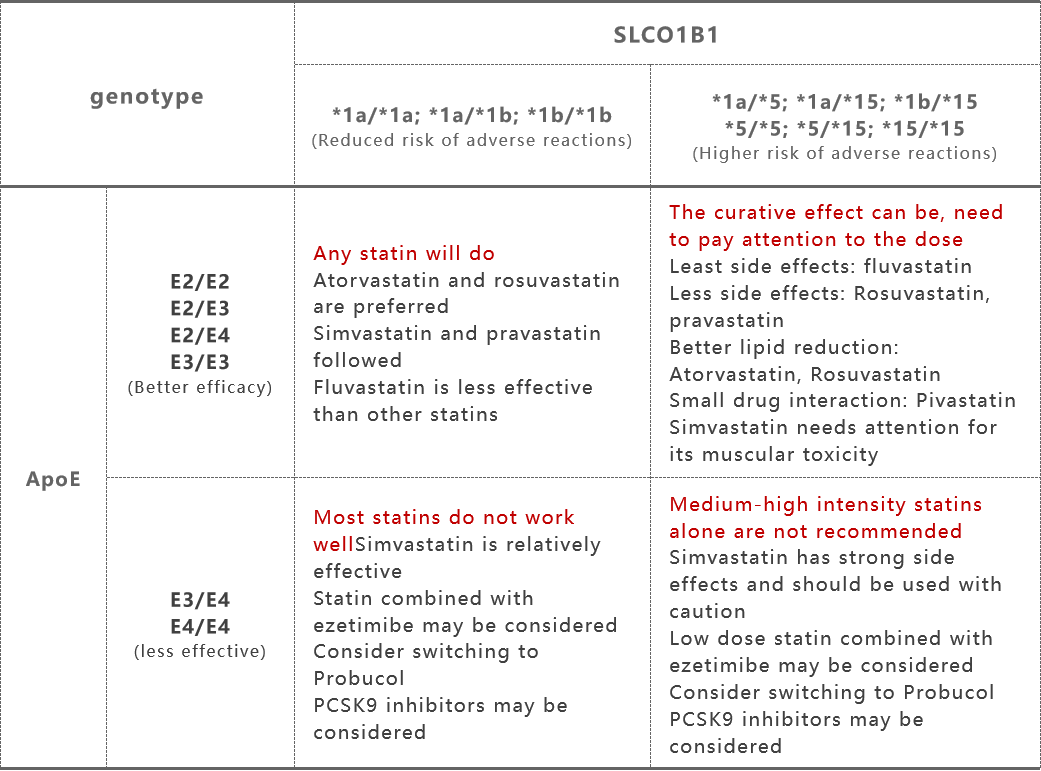Personalized medicine science series of statins
Date:2021-07-01
With the progress and development of society, people's living standards are improving day by day, and their eating habits have also changed. Long-term, excessive fat intake leads to abnormal increase in blood lipid levels in the body. Dyslipidemia plays an extremely important role in the occurrence and development of cardiovascular and cerebrovascular diseases, and has become an important factor threatening human health. According to literature reports, there are 290 million cases of cardiovascular and cerebrovascular diseases in China, including 13 million cases of stroke, 11 million cases of coronary heart disease, 5 million cases of pulmonary heart disease, 4.5 million cases of heart failure, 2.5 million cases of rheumatic heart disease, 2 million cases of congenital heart disease, and 270 million cases of hypertension. The prevalence rate of cardiovascular and cerebrovascular diseases was increasing continuously.
Cardiovascular and cerebrovascular disease drug of choice - statins
Statins are currently the first choice of lipid-lowering drugs in clinical use worldwide (Class I recommendation, Class A evidence), which can reduce the risk of cardiovascular events by effectively reducing low density lipoprotein cholesterol (LDLC) levels. Commonly used drugs are atorvastatin, simvastatin, rosuvastatin, lovastatin and so on.
Statins are a safe and well-tolerated drug, but adverse reactions to statins often occur. The incidence of statin adverse events is about 10%-25%, mainly myopathy and liver function changes. If these adverse events are not regulated, they will not only affect the patient's confidence in treatment, quality of life and continuity of drug use, but also threaten the patient's health and induce other comorbidities if the treatment is not timely. In 2019, the Taiwan Lipid and Atherosclerosis Association developed an expert consensus on statin intolerance for the diagnosis and management of these two types of adverse events.
Effect of gene polymorphism on lipid-lowering effect of statins
Individual differences in the antihypertensive efficacy of statins were found in clinical observation, which was mainly related to gene polymorphisms of statin metabolizing enzymes, transporters and drug target receptors.
ApoE genotype is related to the lipid-lowering effect of statins, and the phenotypic lipid levels of different ApoE genes are different. Mutations at 388T > C and 526C > T sites of this gene are the main factors affecting the lipid-lowering effect of statins, and are closely related to the incidence of various cardio-cerebrovascular diseases. The lipid-lowering effect of statins was the best in people carrying protective genotypes (E2/E2 and E2/E3), followed by the general genotypes (E2/E4 and E3/E3), and the lipid-lowering effect was normal after taking the drug, while the lipid-lowering effect of statins was often poor or ineffective in people carrying risk genotypes (E3/ E4 and E4/E4).
A number of studies have found that SNPS of SLCO1B1 gene have little impact on lipidlowering efficacy of statins, but have a greater impact on blood concentration, leading to increased risk of adverse reactions, for example, 521T > C mutant SLCO1B1 gene can cause a reduction in encoding OATP1B1 protein transport activity. The liver's ability to take up drugs is reduced, which leads to the slowing down of drug metabolism rate and the increase of blood drug concentration, which increases the risk of myopathy. 388A > G can significantly reduce the content of TC and LDLC in serum, and improve the lipid-lowering effect of statins.
Genetic testing is effective in helping statins be used safely

Interpretation of genetic test results
● ApoE (E3/E4) test results showed that the patient's lipid control ability was weaker than ordinary people, and the risk of cardiovascular and cerebrovascular diseases was higher, and the effect of statin was reduced, so a more powerful lipid lowering program was needed.
● SLCO1B1 (*1b/*15) test results showed moderate statin tolerance. As a commonly used lipid-lowering drug, statin needs to be used steadily for a long time. However, the patient's tolerance level would greatly increase the risk of myopathy if long-term high dose of statin is taken, and rhabdomyolysis may occur in severe cases, so statin use should be strictly controlled and tracked.


